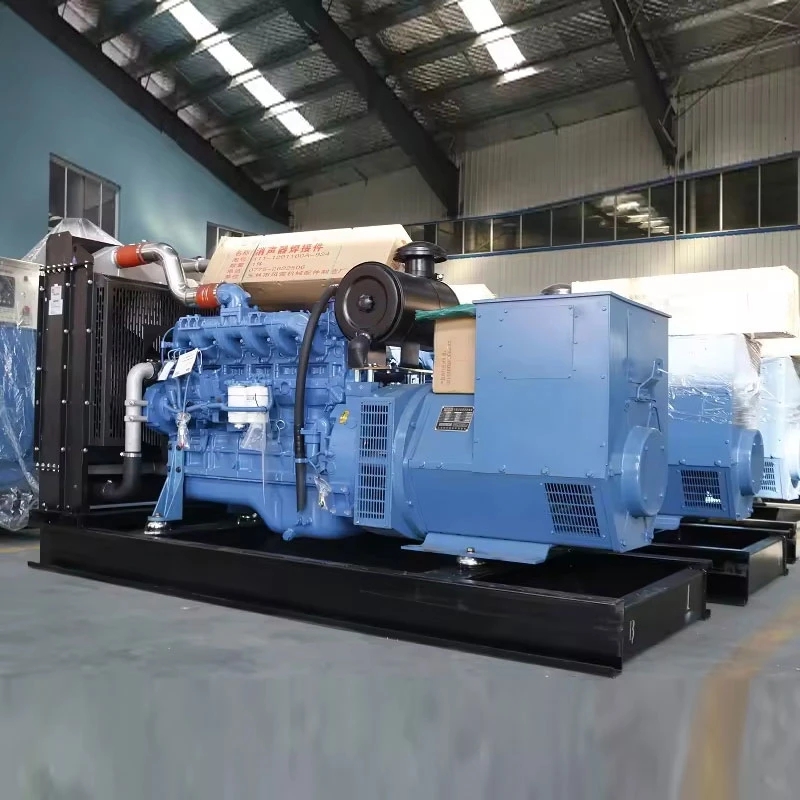Introduction
Diesel generators play a crucial role in providing backup power during emergencies and in areas where the grid supply is unreliable. To ensure the reliability and efficiency of diesel generators, scheduled maintenance is essential. In this article, we will explore the importance of scheduled maintenance for diesel generators, the key components that require regular attention, and best practices for maintenance to maximize the lifespan and performance of these vital power sources.
Importance of Scheduled Maintenance for Diesel Generators

Diesel generators are complex pieces of machinery that require regular maintenance to operate at peak performance. Scheduled maintenance is essential to prevent breakdowns, ensure reliability during power outages, and extend the lifespan of the generator. Neglecting regular maintenance can lead to costly repairs, decreased efficiency, and even complete failure of the generator when it is needed most.
By implementing a comprehensive maintenance schedule, diesel generator owners can identify and address potential issues before they escalate into major problems. Regular maintenance also helps to optimize fuel efficiency, reduce emissions, and improve the overall performance of the generator.
Key Components Requiring Regular Maintenance
1. Engine: The engine is the heart of the diesel generator and requires regular maintenance to ensure optimal performance. This includes checking and changing the oil, fuel filters, air filters, and coolant levels at recommended intervals. Regular inspection of the engine for leaks, worn-out parts, and abnormal noise is also crucial to prevent major breakdowns.
2. Fuel System: The fuel system of a diesel generator must be kept clean and free from contaminants to prevent clogging and fuel flow issues. Regularly inspecting and cleaning the fuel tank, fuel lines, and fuel filters is essential to maintain the efficiency of the generator.
3. Cooling System: The cooling system of a diesel generator plays a critical role in regulating the engine temperature and preventing overheating. Regular maintenance of the radiator, coolant levels, hoses, and water pump is necessary to ensure proper cooling and prevent engine damage.
4. Electrical System: The electrical system of a diesel generator includes components such as the battery, alternator, voltage regulator, and control panel. Regular inspection and testing of these components are essential to ensure proper functioning and prevent electrical failures during operation.
5. Exhaust System: The exhaust system of a diesel generator must be regularly inspected for leaks, corrosion, and blockages to prevent the buildup of harmful gases and ensure proper ventilation of exhaust fumes.
Best Practices for Diesel Generator Maintenance
1. Develop a Comprehensive Maintenance Schedule: Create a detailed maintenance schedule that outlines the tasks to be performed at regular intervals, including daily, weekly, monthly, and annual maintenance activities. Adhering to a structured maintenance schedule helps to ensure that all essential maintenance tasks are completed on time.
2. Keep Detailed Records: Maintain detailed records of all maintenance activities, including dates of service, parts replaced, and any issues identified during inspections. Keeping accurate records helps to track the maintenance history of the generator and identify any recurring issues that require attention.
3. Conduct Regular Inspections: Perform visual inspections of the diesel generator regularly to identify any signs of wear, leaks, or damage. Addressing minor issues early can prevent them from developing into major problems that may require costly repairs.
4. Test the Generator Under Load: Regularly test the diesel generator under load conditions to ensure that it can handle the required power output during an emergency. Load testing helps to identify any performance issues and ensures that the generator is capable of providing backup power when needed.
5. Work with Qualified Technicians: Engage the services of qualified technicians who have experience in maintaining and servicing diesel generators. Professional technicians can identify potential issues, perform maintenance tasks effectively, and provide recommendations for optimizing the performance of the generator.
6. Use Genuine Parts: When replacing components or parts of the diesel generator, always use genuine parts recommended by the manufacturer. Genuine parts are designed to meet the specifications of the generator and ensure compatibility with other components, thereby maximizing the reliability and performance of the generator.
30kw diesel generator
Scheduled maintenance is essential for ensuring the reliability, efficiency, and longevity of diesel generators. By following a comprehensive maintenance schedule, monitoring key components, and adhering to best practices for maintenance, diesel generator owners can minimize the risk of breakdowns, optimize performance, and extend the lifespan of their valuable power source. Investing time and resources in regular maintenance not only protects the generator investment but also ensures that backup power is available when needed most.
